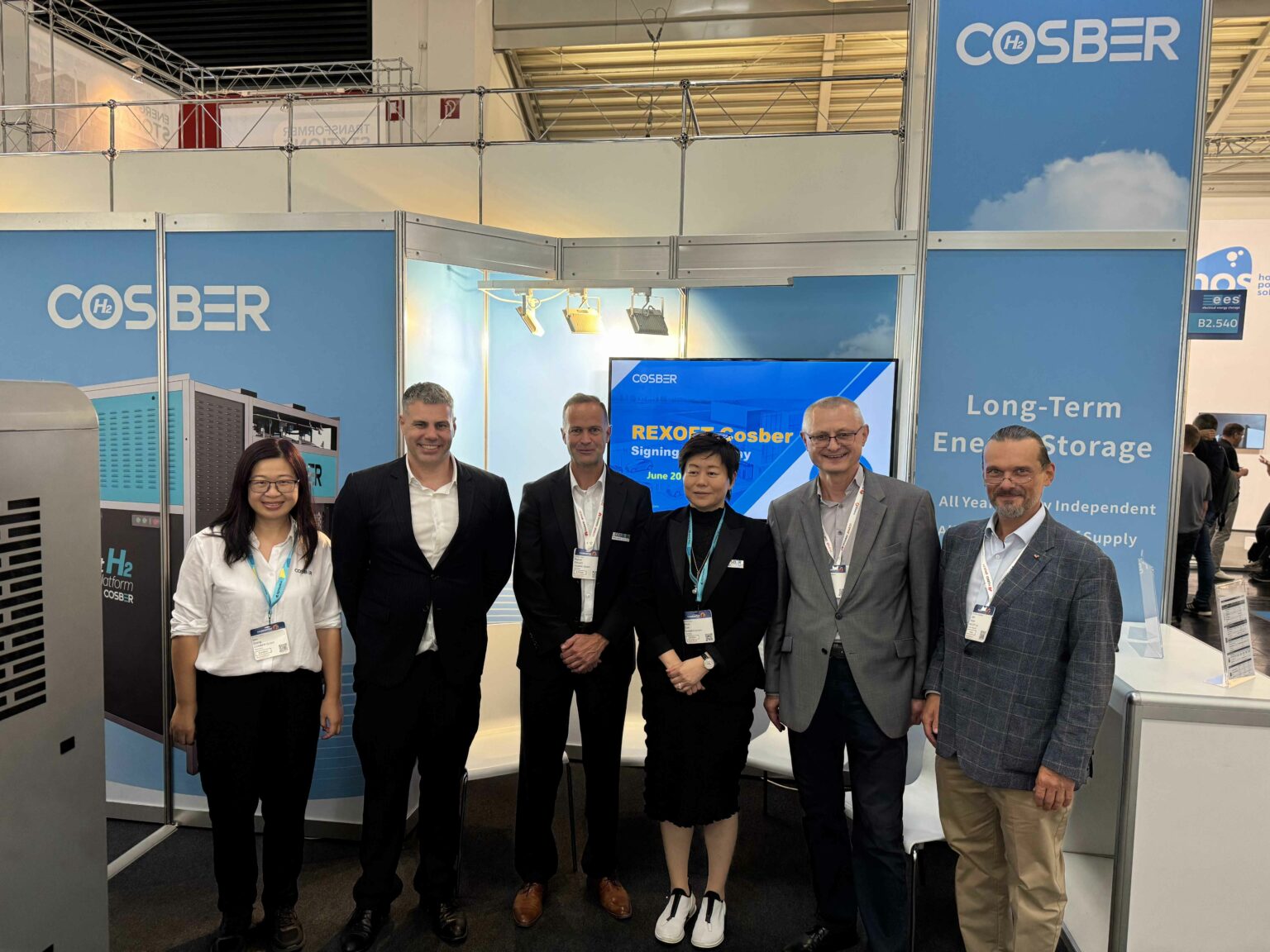The Czech and Slovak markets have recently welcomed the Cosber “Smart H2 Energy Platform,” an end-to-end hydrogen production and energy storage system.
This development, facilitated through a cooperation agreement between REXOFT s.r.o. and Cosber, introduces an innovative approach to energy self-sufficiency.
The “Smart H2 Energy Platform” claims to be the first solution globally capable of providing continuous energy supply to passive homes and buildings throughout the entire heating season. This system leverages a combination of photovoltaic power (FVE), an AEM electrolyzer for hydrogen production, and a fuel cell for electricity generation, among other components. While the integration of these technologies is impressive, it is crucial to analyze how it measures up against other solutions in the market.
Cosber utilizes an Anion Exchange Membrane (AEM) electrolyzer, touted as the most modern technology for hydrogen production. However, the adoption of AEM technology is still emerging compared to the more widely tested Proton Exchange Membrane (PEM) electrolyzers. While AEM electrolyzers offer potential advantages in efficiency and cost, their long-term reliability and performance are less established. This raises questions about the system’s durability and maintenance needs, especially in real-world applications.
The system includes a hydrogen storage module (HSS) at 350 bar pressure and a Li-Ion battery module (ESS) with up to 30 kWh capacity. These storage solutions are designed for short-term and seasonal energy needs, enabling the “Capture energy in summer & use it in winter” concept. While this approach is innovative, its practicality on a larger scale remains to be seen. Competing technologies, such as high-capacity lithium-ion batteries and other forms of seasonal storage, have set high benchmarks that Cosber’s solution must meet or exceed.
REXOFT’s role in delivering and servicing the Smart H2 Energy Platform is critical. The success of such advanced technology heavily relies on robust support and maintenance infrastructure. REXOFT’s commitment to providing installation and service through regional partners is a positive step, but the actual effectiveness will depend on the execution. The selection of a pilot project with discounted implementation is a strategic move to demonstrate the platform’s capabilities. However, the scalability and replicability of this pilot will determine its broader market acceptance.
The success of this system will also depend on market readiness and regulatory frameworks in the Czech Republic, Slovakia, and potentially other European countries. The evolving energy laws and incentives for hydrogen technology will play a crucial role in shaping the market landscape.
